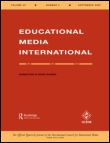
Educational Media International
Scope & Guideline
Transforming learning experiences with cutting-edge research.
Introduction
Aims and Scopes
- Integration of Technology in Education:
Researching and developing frameworks for integrating various technologies, such as mobile applications, virtual reality, and IoT, into educational practices to enhance teaching and learning. - Digital Literacy and Competence:
Exploring concepts of media literacy, digital citizenship, and information literacy in educational settings, with a focus on developing competencies among students and educators. - Innovative Learning Environments:
Investigating new pedagogical approaches and learning environments, including gamification and participatory culture, to foster engagement and collaboration in learning. - Teacher Professional Development:
Focusing on the preparation and ongoing training of educators in using technology effectively in their teaching practices, and understanding their perceptions and challenges. - Impact of Distance Learning:
Examining the effects of distance learning, particularly in the context of the COVID-19 pandemic, on students, teachers, and parents, and identifying best practices for future implementation.
Trending and Emerging
- Technostress and Mental Health:
There is a growing focus on the impact of technology on mental health and stress levels among educators and students, particularly in the context of remote learning during the pandemic. - Gamification and Game-Based Learning:
The trend towards gamification in education is on the rise, reflecting a shift towards more engaging and interactive learning experiences that utilize game mechanics. - Mobile and Flexible Learning:
Increasing publications related to mobile learning and the creation of flexible learning paths indicate a trend towards accommodating diverse learning needs and environments. - Collaborative Learning and Knowledge Sharing:
Emerging themes around participatory culture and collaborative learning environments highlight the importance of social interaction and community in educational settings. - Innovative Assessment Strategies:
There is a notable increase in research focused on innovative assessment methods, including the use of technology to evaluate student learning and engagement.
Declining or Waning
- Traditional Classroom Practices:
There seems to be a declining focus on conventional teaching methodologies without technology integration, as the emphasis has shifted towards innovative and technology-enhanced practices. - General Educational Psychology:
Research themes centered around broader educational psychology concepts are less prevalent, with a noticeable shift towards more specific, technology-related psychological impacts. - Print Media in Education:
The exploration of print media and traditional educational materials is decreasing, reflecting a broader trend towards digital resources and online learning environments. - Single Technology Tools:
There is a waning interest in studies focused solely on individual technology tools without considering their integration into comprehensive educational strategies. - Static Curriculum Frameworks:
Research on rigid or static curriculum frameworks is less common, as the journal increasingly emphasizes dynamic and adaptable learning environments that incorporate various media.
Similar Journals
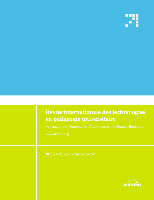
International Journal of Technologies in Higher Education
Transforming Education Through TechnologyInternational Journal of Technologies in Higher Education, with ISSN 1708-7570 and E-ISSN 1708-7570, is a distinguished academic platform dedicated to advancing the intersection of technology and pedagogy in higher education. Published by INT JOURNAL TECHNOLOGIES HIGHER EDUCATION, this open-access journal has been at the forefront of educational innovation since 2004, providing researchers, practitioners, and students access to high-quality research without financial barriers. The journal aims to disseminate cutting-edge studies, best practices, and theoretical insights that explore the transformative impact of emerging technologies in the field of education. Situated in Montreal, Canada, the journal serves as a pivotal resource for those committed to enhancing learning environments through technological advancements. By fostering scholarly discussion and collaboration, the International Journal of Technologies in Higher Education plays an essential role in shaping the future of educational practices globally.

Open Praxis
Elevating educational practices with rigorous research insights.Open Praxis, published by the International Council for Open and Distance Education, is a premier open-access journal dedicated to advancing the field of open and distance education. With its ISSN 2304-070X and E-ISSN 2304-070X, Open Praxis has been providing a platform for rigorous research and innovative practice since 2013, catering to an expanding audience of researchers, educators, and policy-makers interested in the latest advancements in educational methodologies and technologies. The journal is indexed in Scopus, achieving impressive rankings within both the Library and Information Sciences (Rank #72/280, Percentile 74th) and Education (Rank #453/1543, Percentile 70th) categories, highlighting its significant impact in the academic community. Operating under a commitment to open access principles, Open Praxis facilitates knowledge dissemination and collaboration, making vital research accessible to a global audience. Scholars aiming to stay at the forefront of open and distance learning are invited to engage with this journal, which serves as a critical resource for emerging trends, challenges, and solutions in education.
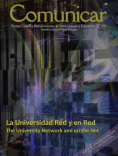
Comunicar
Elevating voices in Communication and Cultural Studies.Comunicar is a prestigious academic journal published by Oxbridge Publishing House, focusing on the fields of Communication, Cultural Studies, and Education. Since its launch in 2002, the journal has operated under an Open Access model, ensuring that research is freely available to a global audience. Based in Spain, Comunicar has established itself as a leading publication, holding a Q1 ranking in 2023 across all its disciplines. It ranks in the top 1% of social sciences journals for Cultural Studies and Communication, and in the top 4% for Education, reflecting its significant impact and reach within these vital areas of study. The journal not only showcases innovative research but also promotes interdisciplinary dialogue, making it an essential resource for scholars, professionals, and students aiming to stay abreast of the latest developments in communication theory and practice.

Cadmo
Navigating the Complexities of Culture and EducationCadmo is a prominent academic journal published by FRANCO ANGELI, specializing in the fields of Cultural Studies, Education, and History. With a long-standing commitment to advancing knowledge from its inception in 2005, the journal has established itself within the academic community, featuring a diverse range of scholarly articles that engage with contemporary issues through a cultural lens. Although it operates without an open access model, Cadmo maintains a solid reputation, positioned in 2023 within the Q3 and Q4 quartiles in various categories, reflecting its ongoing contribution to rich disciplinary dialogues. The journal's rigorous peer-review process ensures high-quality research dissemination, inviting submissions that contribute to theoretical, empirical, and methodological advancements. Researchers, professionals, and students alike will find Cadmo an invaluable resource for insights and developments within its interdisciplinary domains.
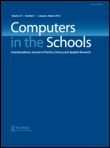
COMPUTERS IN THE SCHOOLS
Empowering educators with insights on computer integration.COMPUTERS IN THE SCHOOLS, published by ROUTLEDGE JOURNALS, TAYLOR & FRANCIS LTD, is a pivotal scholarly journal dedicated to exploring the intersection of technology and education. With an impressive publishing history dating back to 1984 and ongoing contributions until 2024, this journal provides a comprehensive platform for researchers and educators to disseminate innovative ideas and practices related to the use of computers in educational settings. Although the journal does not currently offer Open Access options, it maintains an esteemed position in the academic community, evidenced by its Q2 ranking across multiple categories including Computer Science, Education, and Library and Information Sciences in 2023. It is particularly valued for its rigorous peer-review process which ensures high-quality contributions. With its ISSN of 0738-0569, COMPUTERS IN THE SCHOOLS serves as an essential resource for advancing knowledge, fostering best practices, and influencing policy in the integration of technology into schools, making it indispensable for educators, researchers, and practitioners striving to enhance learning experiences through innovative technological approaches.

RIED-Revista Iberoamericana de Educacion a Distancia
Connecting Educators and Researchers WorldwideRIED-Revista Iberoamericana de Educacion a Distancia is a premier academic journal dedicated to the dynamic field of distance education, published by the ASOCIACION IBEROAMERICANA EDUCACION SUPERIOR & DISTANCIA - AIESAD. Established in 1998 as an Open Access journal, it provides a valuable platform for researchers, educators, and practitioners to disseminate and access cutting-edge research and innovative practices in distance learning. With its ISSN 1138-2783 and E-ISSN 1390-3306, RIED ranks within the top 2nd Quartile (Q2) in both Computer Science Applications and Education as of 2023, showcasing its significant impact and relevance in academia. Positioned in Spain, the journal not only serves the Ibero-American educational community but also contributes to the global discourse on online education methodologies and technologies. With an impressive Scopus ranking in the 92nd percentile for Social Sciences (Education) and 77th percentile for Computer Science (Computer Science Applications), RIED is essential for those seeking to advance their understanding and expertise in the realm of distance education.
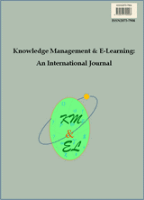
Knowledge Management & E-Learning-An International Journal
Connecting Ideas, Inspiring Change in Education.Knowledge Management & E-Learning-An International Journal, published by the Laboratory Knowledge Management & E-Learning University in China, is a pioneering open-access platform that has been advancing the fields of education, e-learning, and technology management since its inception in 2009. With an ISSN of 2073-7904 and a commendable placement in the Q2 quartile across multiple categories including Education and Management of Technology and Innovation, this journal serves as a vital resource for researchers, educators, and practitioners seeking current insights and innovative methodologies in knowledge management and digital learning environments. Its recognition within Scopus, ranking 294th in Social Sciences Education and 106th in Business Management, underscores its significance and the impact of its contributions to the scholarly community. With a focus on fostering interdisciplinary collaboration and promoting the latest research findings, Knowledge Management & E-Learning remains committed to enhancing the dialogue on effective knowledge dissemination and digital pedagogies. Accessing its content is straightforward, as the journal has embraced an open-access policy, making research freely available to a global audience.

Pixel-Bit- Revista de Medios y Educacion
Empowering Knowledge Through Open Access ResearchPixel-Bit: Revista de Medios y Educación is an esteemed academic journal published by UNIV SEVILLA, EDITORIAL, dedicated to advancing the fields of media and education through rigorous research and insightful analysis. With its Open Access policy established in 2010, the journal ensures that the latest findings and methodologies are readily accessible to researchers, professionals, and students worldwide. Operating from Seville, Spain, Pixel-Bit has been recognized for its significant impact within its respective fields, achieving Q2 and Q3 rankings in multiple categories such as Computer Networks and Communications, Computer Science Applications, Education, and Information Systems as of 2023. Its Scopus rankings further reflect its influence, with notable placements in the 83rd percentile in Social Sciences - Education. This journal serves as a pivotal platform for disseminating knowledge, fostering innovative practices, and bridging the gap between technology and pedagogy in an increasingly digital world.
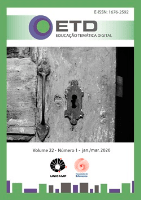
ETD Educacao Tematica Digital
Championing Open Access for Educational ExcellenceETD Educacao Tematica Digital is a distinguished academic journal published by UNIV ESTADUAL CAMPINAS, FAC EDUCACAO, and has been at the forefront of educational research since its inception in 2004. With a focus on digital education and thematic approaches, this open access journal facilitates the dissemination of knowledge and innovative practices in the field of education, making it an invaluable resource for researchers, educators, and students alike. Its dedicated editorial board fosters discourse on the integration of technology within educational frameworks, ensuring the publication of high-quality articles that resonate with contemporary challenges and advancements in education. The journal’s commitment to accessibility and scholarly rigor positions it as a leading venue for those seeking to advance their understanding and application of digital pedagogies. With the ISSN 1676-2592, ETD aims to contribute significantly to the global discourse on educational methodologies and digital learning environments.
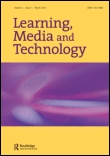
Learning Media and Technology
Advancing knowledge at the crossroads of education and technology.Learning Media and Technology, published by Routledge Journals, Taylor & Francis Ltd, is a leading academic journal that stands at the intersection of education and media technology. With its ISSN 1743-9884 and E-ISSN 1743-9892, this esteemed publication has achieved a remarkable Q1 ranking in both the Education and Media Technology categories as of 2023, positioning it within the top-tier journals in these fields. The journal's impressive Scopus rankings further underscore its significance, with a notable rank of #34 out of 1543 in Education and #4 out of 63 in Media Technology, reflecting its high impact and contribution to ongoing research. Covering a wide range of topics from innovative teaching practices to the evolving role of technology in education, the journal aims to foster critical discourse and disseminate pioneering research findings to a global audience. Although it does not currently offer open access, its comprehensive coverage and authoritative insights make it an essential resource for researchers, professionals, and students looking to enrich their understanding of how learning media and technology shape educational landscapes from 2005 to 2024.